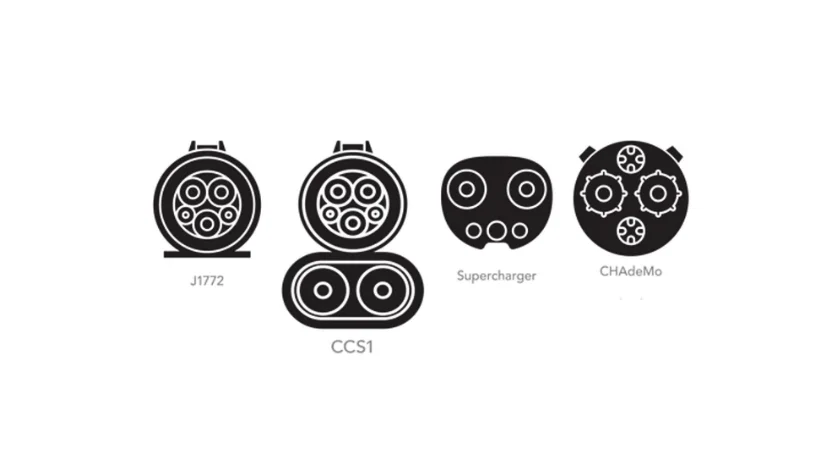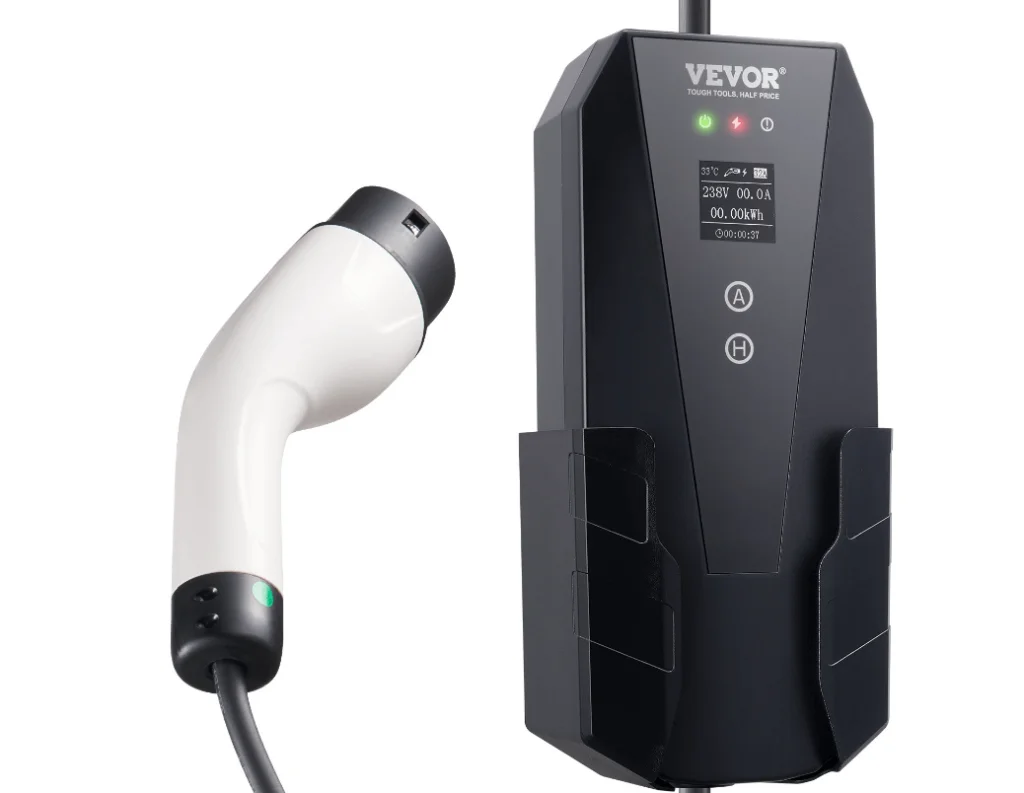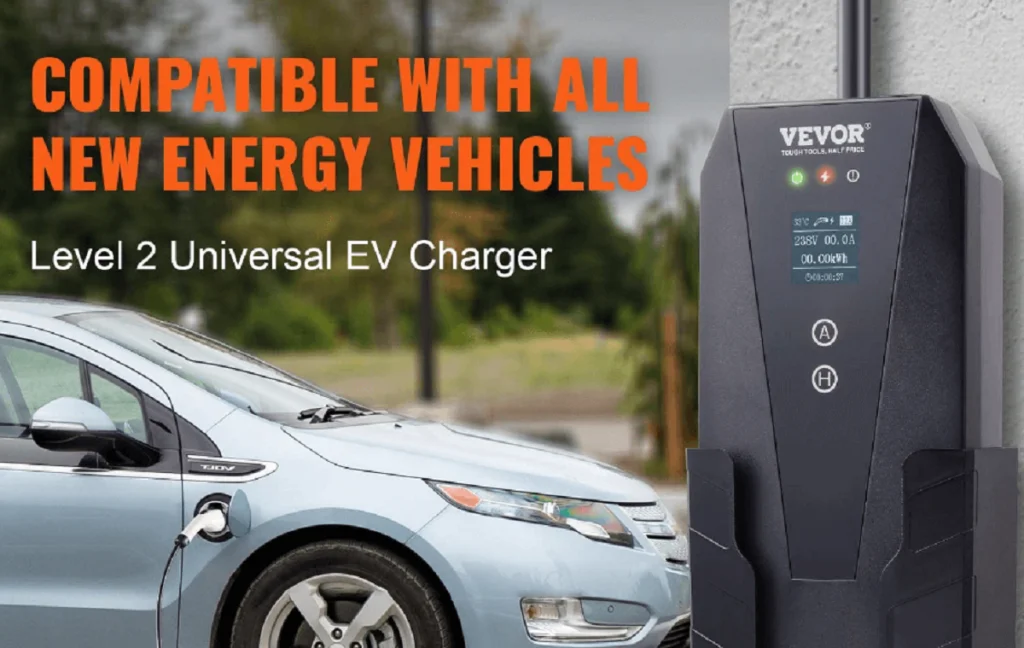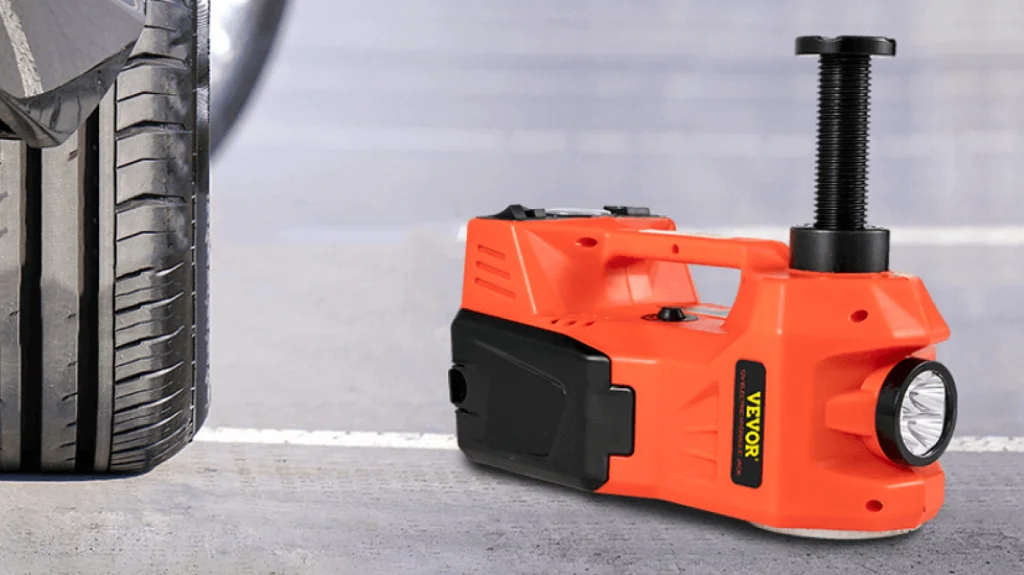Electric vehicles emerged as a prominent solution while reducing carbon emissions and less dependency on fossil fuels; the world is transitioning toward eco-friendly transportation. But this advanced technology raises many questions, the most common being: Are all-electric car chargers the same? This article will delve into this question and provide useful insight into the rapidly growing electric vehicle market.
EVs (electric vehicles) differ in their connector, speed types, and model compatibility. Therefore, it’s essential for EV owners to understand their charging needs and the differences between charger types.
It’s time to explore advanced technology for charging electric vehicles with the VEVOR portable level 2 charger. It offers convenience, reliability, and efficiency on the go and transforms how you charge your vehicles. Do all EVs use the same charger? All these things stand out and make it unique among other EV charging solutions.
Table of contents
EV Charging Basics
However, EV vehicles work on a relatively simple principle: energy is stored in electricity to power a motor. However, replacing the battery is vital in EVs as they act as fuel tanks. Here’s how charging plays an important role.
Are EV chargers universal? The EV chargers work in the same way as you charge your phone. When you feel the battery is low, plug it in the charger and utilize it after a few hours when you want to use it again. Similarly, the EV charger is refueled by plugging it into the power outlet to recharge the battery. But it’s important to learn which charger plug should be used with which EV (electric vehicle) and what chargers are available.
Types of Electric Vehicle Charger:
When talking about EV chargers it’s important to understand the different types that should be convenient and efficient. Here are the types of chargers:
- Level 1 Charger
- Level 2 Charger
- Level 3 Charger
Level 1 Charger
Level 1 chargers offer a standard household 120V AC outlet, usually included with the EV purchase. Moreover, as they provide the slowest charging rate, they’re only used for households and are suitable for overnight home charging.
Level 2 Charger
These chargers operate on a 240V AC circuit and offer faster charging than level 1 chargers. They’re generally found in workplaces, residential settings, and public charging stations. They’re compatible with most EVs and speed up the charging process compared to Level 1 Chargers.
Level 3 Charger
DC fast or level 3 charger provides fast charging using DC power. You can find them on highways and commercial charging stations. They can charge your electric vehicles in a few minutes, making them an excellent choice for long-term travel and quick fill-up.

What are Different Plugs
Do all-electric cars have the same plug? Different EV chargers have different plug types according to the region and charging standards.
1-Type 1 (J1772)
This type is used in Japan and North America. These connectors support level 1 and 2 charging and can be used with most vehicles in this region.
2-Level 2 (Mennekes)
Type 2 plug is commonly used in the EU for level 2 charging. Many EU EVs are often incorporated with a level 2 inlet, and a public charging grid supports this type of plug.
3-CCS (Combined Charging System)
With additional DC charging capabilities, CCS- a universal plug can easily be combined with a type 2 connector. DC fast charging is widely used in Europe and North America and is usually supported by many electric vehicles.
4-CHAdeMO
The CHAdeMO plug provides fast charging and was developed in Japan. However, it was found less in North America and Europe, but it still supported some EV models Japanese manufacturers invented.

Do All Electric Cars Use the Same Charger
Now the question is do all electric vehicles use the same charger? It’s the most common question on the minds of many current owners. Understanding the EV charger’s compatibility is the main point for EV owners when considering travel and location-dependent charging. Here’s a reason why not all the cars use the same charger:
Charging Speed: Every car’s battery capacity and charging capabilities are different. Some EVs accept only faster speed chargers than others. For instance, a high-end vehicle can support only DC fast charging while the others can only support Level 1 or Level 2 charging.
Connector Types: Different connectors depend on electric vehicle charging, such as CCS, CHAdeMO, and Tesla’s proprietary plug. Different manufacturers and regions can use different types of connectors. Take Texla, for example, which uses its unique connector to charge at the Tesla charging point.
Compatibility: However, many modern electric cars are built to make them compatible with various charging stations; they may differ in compatibility based on the specifications and capabilities of the cars. Still, DC fast chargers are not supported with older EV models, and an adaptor is needed to use specific types of chargers.
How Universal Chargers Work with Various EVs
Level 2 chargers, known as Universal EV chargers, use a standardized connector called SAE J1772. These are designed to work with many electric vehicles in North America. With this standard, most EVs can benefit from universal charging without using any brand after plugging in. Are EV chargers universal? Universal Electric Chargers are a basic element in facilitating the ownership of electric vehicles to make them more affordable. With their capabilities to bridge the gap between EV charger requirements, they facilitate an eco-friendly environment. Due to this, EV drivers can easily charge their vehicles with this advanced technology and standardized charging methods.
Whether you’re driving a Nissan, BMW, Chevy Bolt, or any other EV, you may now have peace of mind by acknowledging that this universal EV charger won’t disappoint you.
Choosing the Right EV Charger for You
The adoption of electric vehicles starts to gain momentum when solutions for home charging are needed. Considering various options and selecting the best EV charger is a daunting task. When making a decision, there are a variety of key considerations that should be kept in mind.
Factors to Consider When Selecting an EV Charger
When selecting an EV charger some important factors should be considered which are:
Charging Levels:
There are three levels of EV charging which are:
- Level 1 Charging: Uses a 120V household outlet.
- Level 2 Charging: This charging level uses a 240V supply and is much faster than Level 1.
- Level 3 Charging: These are used by industrial and commercial areas as they demand high power requirements.
Connector Compatibility:
While using a charger, ensure your vehicle has the right plug type. Many chargers, except Tesla, use a standard J1772 connector and are compatible with many EVs.
Speed
Understand how fast you can charge your vehicle. Additionally, Level 2 chargers provide a good balance for EV owners and offer full charge efficiency in a few hours.
Output Power
Examine the output power of the charger and measure it in KW. If you get higher KW, then it means fast charging. But before using it, ensure your EV can handle output power.
Portability
It depends on whether you use a portable charger to plug into an existing outlet or would like a permanently installed station. A professional can help you in this matter.
Why the VEVOR Portable Level 2 Charger Stands Out
With an extra-long charging cable and dual functionality, the VEVOR level 2 charger is a versatile and practical solution for EV owners. A 4-level current adjustment is compatible with many vehicles and allows a user-friendly interface through the App and manual adjustment.
You can install it safely outside because it can withstand any weather and provide a shield from snow and rainfall.
FAQs about EV Chargers
1. Are EV chargers universal?
Yes, EV chargers are universal and charge many electric vehicles. However, these can be categorized into three different levels and each of them has a different power level.
2. What’s the difference between EV chargers?
As compared to level 1 chargers, level 2 chargers are faster and require professional installation. Furthermore, they have the ability to convert AC to DC and offer a high power output in the range of 3.3 to 19.2 KW.
3. Can electric cars use any charger?
EVs can be plugged into different types of connectors through different types of connectors. Still, your EV is compatible with many important charge stations, but not all benefit you.
Summing Up
Hopefully, this guide has eliminated all of your confusion when you want to buy an EV charger and this question hits your mind: do all EVs use the same charger, or do all electric cars have the same plug? To maximize the charging performance, ensure the EV charger is compatible with your EVs. It’ll protect you from damage and ensure convenience while minimizing the cost and prioritizing safety and reliability. By knowing your EVs’ charging requirements, choose compatible charging solutions easily.
VEVOR Level 2 charger is the ultimate vehicle solution, whether you’re hitting the road for an adventure or need a reliable charging option for your home or workplace. VEVOR has solved many customers’ concerns when they ask are all-electric car chargers the same. Because it’s compatible with many EVs and provides efficient results, trust the VEVOR to keep your EV charged and ready to go.
Now, experience the freedom of driving an electric vehicle with VEVOR!





